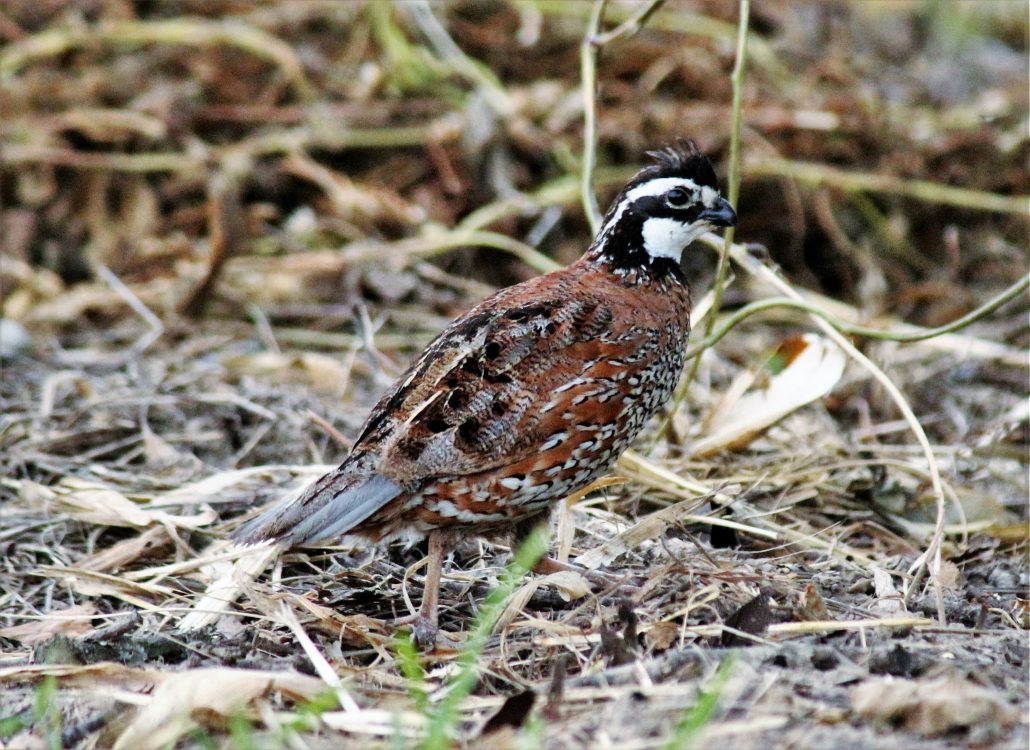Recovering America’s Wildlife Act funds proactive, state-led efforts nationwide. Tennessee Wildlife Resources Agency would receive $20.8 million annually.
According to the 2015 Tennessee State Wildlife Action Plan, more than 1,400 Tennessee plant and animal species are listed as being in greatest need of conservation, including the Northern Bobwhite Quail, the Chickamauga Crayfish, the Virginia Big-eared Bat, and the Red Squirrel.
The Recovering America’s Wildlife Act, introduced by Reps. Jeff Fortenberry (R-Neb.) and Debbie Dingell (D-Mich.), would direct $1.3 billion of existing revenue from oil and gas activities on federal lands and waters towards state-led efforts to prevent species like these from becoming endangered. From these funds, Tennessee Wildlife Resources Agency (TWRA) would receive $20.8 million annually.
READ MORE>> Recovering America’s Wildlife Act
Like state wildlife agencies nationwide, TWRA is legally mandated to manage and conserve all species in the state. However, the management of nearly 1,500 species that are “in need of conservation” or included on the federal endangered and threatened species list has largely gone unfunded. The Recovering America’s Wildlife Act would address that issue and enable the agency to manage species to prevent them from becoming listed as threatened or endangered. Prevention costs a fraction of the billions of tax dollars and lost private revenue that conserving a single endangered species costs.
“Tennessee Wildlife Resources Agency has revitalized countless species through science-based management. This bill is a reasonable investment in that proven and pragmatic approach,” said Michael Butler, chief executive officer of the independent nonprofit, Tennessee Wildlife Federation. “When a species is listed as endangered, it causes a tremendous amount of conflict and cost in the private sector around habitats and land use. And the government’s expenses skyrocket as it rushes to conserve a small population. This bill gives Tennessee the chance to avoid those scenarios.”
Factors such as habitat loss, invasive species, and disease have taken a significant toll on birds, mammals, fish, amphibians, reptiles, butterflies, and bees in Tennessee and across the nation. In Tennessee, there are currently more than 70 federally listed threatened and endangered wildlife species.
“Right now, America’s wildlife are in crisis and need our help,” Collin O’Mara, president and chief executive officer of the National Wildlife Federation, said about the bill. “As many of one-third of all wildlife species in our nation are at risk. We need to act now to ensure that future generations of Americans inherit the full diversity of our nation’s fish and wildlife. We thank Representatives Fortenberry and Dingell for introducing the historic Recovering America’s Wildlife Act.”
The legislation builds upon the successes of the Federal Aid in Wildlife Restoration Act (Pittman-Robertson) and the Federal Aid in Sportfish Restoration Act (Dingell-Johnson) that have allowed America to lead the world in the conservation of species, such as deer, elk, wild turkeys, and many species of waterfowl and sportfish.
“We need to get this bill passed and I hope Tennessee’s members of the House, along with Senators Alexander and Corker, will support it enthusiastically. Future generations of Tennesseans will thank us if we work together to get this right,” said Michael.
Organizations, businesses and individuals across the state can join the Tennessee Alliance for America’s Fish and Wildlife to show their support for this critical legislation by visiting tnwf.org/join-the-alliance.
The alliance is being spearheaded by Tennessee Wildlife Federation.
The legislation will enable the recovery of wildlife populations by funding proactive and collaborative on-the-ground conservation actions. These efforts will be guided by the State Wildlife Action Plans, which are developed collaboratively by state fish and wildlife agencies in consultation with conservation partners, landowners, businesses, and the U.S. Fish and Wildlife Service. States will be required to provide 25 percent matching funds.
“The approach is unique because it calls for early action to save struggling wildlife, rather than waiting until species are on the brink of extinction. When this bill becomes law, we will increase wildlife populations, strengthen America’s economy, and reduce the need for regulatory measures,” said Collin.
Learn more about Recovering America’s Wildlife Act at tnwf.org/Recovering-Americas-Wildlife-Act
Featured photo by Dallise Temple




